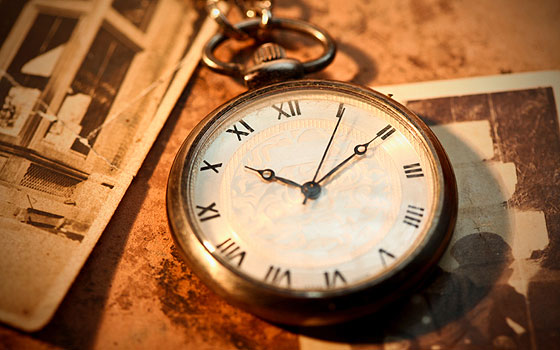Lifelong Learning - Reflection on the Biography

Learning Outcomes
Upon completion of this lesson's material, students will be able to:
- Apply a variety of developmental models/theories to an understanding of identified events in a person's life.
- Apply lessons learned in the Biography assignment to an assessment of one's own life path.
Teaching
There are two purposes to this assignment: 1. To apply the theories and models about human develpment that are covered in this course to your biography subject so that you can see these models in the real world, and 2. To reflect upon the valuable knowledge that you gained through the perspective of your Biography subject. Your task will be to put together a paper that has the following sections in them. Title each section with a boldface title and be clear in your writing style.
This assignment should reflect a high degree of effort on your part to apply what you have learned through this process. DO NOT APPROACH THIS ASSIGNMENT LIGHTLY! I'm asking you to get DEEP.
You have worked very hard on this project and in this class, it is vital that you make this effort to REFLECT on that learning so that you can benefit the most from the process you have gone through.
REMEMBER, FORMAT YOUR PAPER SO THAT EACH OF THESE SECTIONS IS HIGHLIGHTED BY BOLD TITLES...MAKE IT EASY FOR YOUR INSTRUCTOR TO LOCATE EACH PART OF THIS PAPER.
Please follow the following outline for the structure of your paper:
Title Page
- Include your name
- Assignment name: "Reflection on the Biography of ....(insert your subject's name here)"
- Name of the course
- Date
Application of Theory
In this section you will outine three (3) stories from the biography and analyze these stories in light of three DIFFERENT theories or models you have learned about in this class. For each one you will include the following:
- In bold font, the titles "Theory Applicaiton 1", then "Theory Applicaiton 2", then "Theory Application 3"
- At least one paragraph describing the event(s) from the life story that you are going to analyze. This is NOT the analysis itself, this is the story right from your biography told in a way that ensures that the reader understands the story and will be able to connect it to your analysis.
- A name and description of the theory or model you are going to use to analyze the story.
- A 1-paragraph analysis of the story where you demonstrate how the theory is applied, or supported (example), or contested (non-example, when the person did not follow the predictions in the theory).
There are many theories and models from the course that you can choose from. As you make your way through the material, be sure ot ask your instuctor of the current topic is a model or not.
Some examples of these may include the following:
- Prenatal Development
- Critical Periods
- Physical and Motor Development
- Theory of Mind
- Self-Perception
- Piaget's Genetic Epistimology
- Information Processing
- Cultural Identity
- Language Development
- Erikson's Psychosocial Development Theory
- Attachment
- Gender Role Development
- Looking Glass Self
- Vygotsky's Theory
- Intelligence (including exceptionality)
- Multiple Intelligence Theory
- Family Systems Theory
- Parenting Styles
- Social Groups (Friends, Work, Family)
- Perspective Taking
- Puberty
- Elkind's Adolescent Egocentrism
- Moral Developent (Kohlberg and/or Gilligan)
- Identify Development
- Rites of Passage
- Possible Selves
- Puzzle Pieces
- Love and Intimacy
- Sternberg's Triangular Theory of Love
- Reflective Judgement
- Holland's Occupational Theory
- Work and Family
- Midlife Crisis (Marcia's Theory)
- Middle Age Family Changes (included Empty Next Syndrome)
- Aging
- Continuity Theory
- Late Life Cognitive Developmnt
- Mental Health and Aging
- Wisdom
- Grieving
- Chronic Illness
- Disability
- Any of the Developmental Thoeries from Lesson 2 (Psychodynamic, Learning, Cognitive, Ecological, and Life Course)
Please note: Concepts such as "The Developmental Perspective", "Developmental Clocks", "Nature vs. Nurture", "Continuity vs. Discontiuity", and "Universal vs. Contextual" CANNOT be used...these are not THEORIES or MODELS.
Historical Perspective
Select an event in your subject's life that relates to local, regional, national, or world events that were going on at the time. Conduct some additional outside research on that event. Describe the event and interrelate your subject's perspective on these events.
Learning Wisdom
It is hard to write a Biography of a person without being personally moved by it. Reflect on some perspectives you may have had about the "world" or "education" or just about any topic. How has getting to know the historical perspective of this person changed, in any way, your perspective on these subjects.
Interviewing Skills
This activity required that you interview someone about intimate details in their lives. Reflect on what you have learned about communicating with others, asking questions, and listening to stories.
What will happen to this story?
Explain what is going to happen with the Biography you put together? Did your subject get a copy? Do other family members want copies? Will you publish it? Reflect on who might be interested in reading this story. Consider doing any number of these things with the story because you have gathered a very important part of history.
Grading Rubric
Click HERE to view the rubric for this assignment.